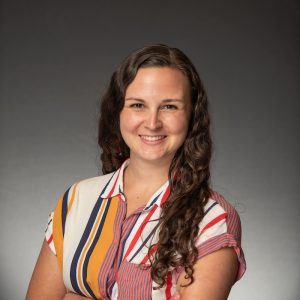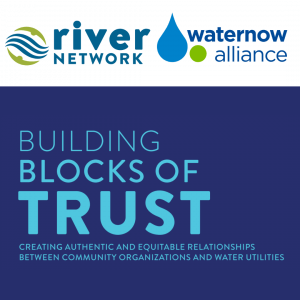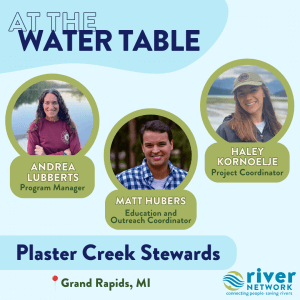River Voices: February 2025

Welcome to the February 2025 edition of River Voices. This month, we’re sharing organizations’ stories and lessons on creating community leadership and stewardship programs, from planning and design stages all the way to launching a successful program. Plus, explore our newest learning series!
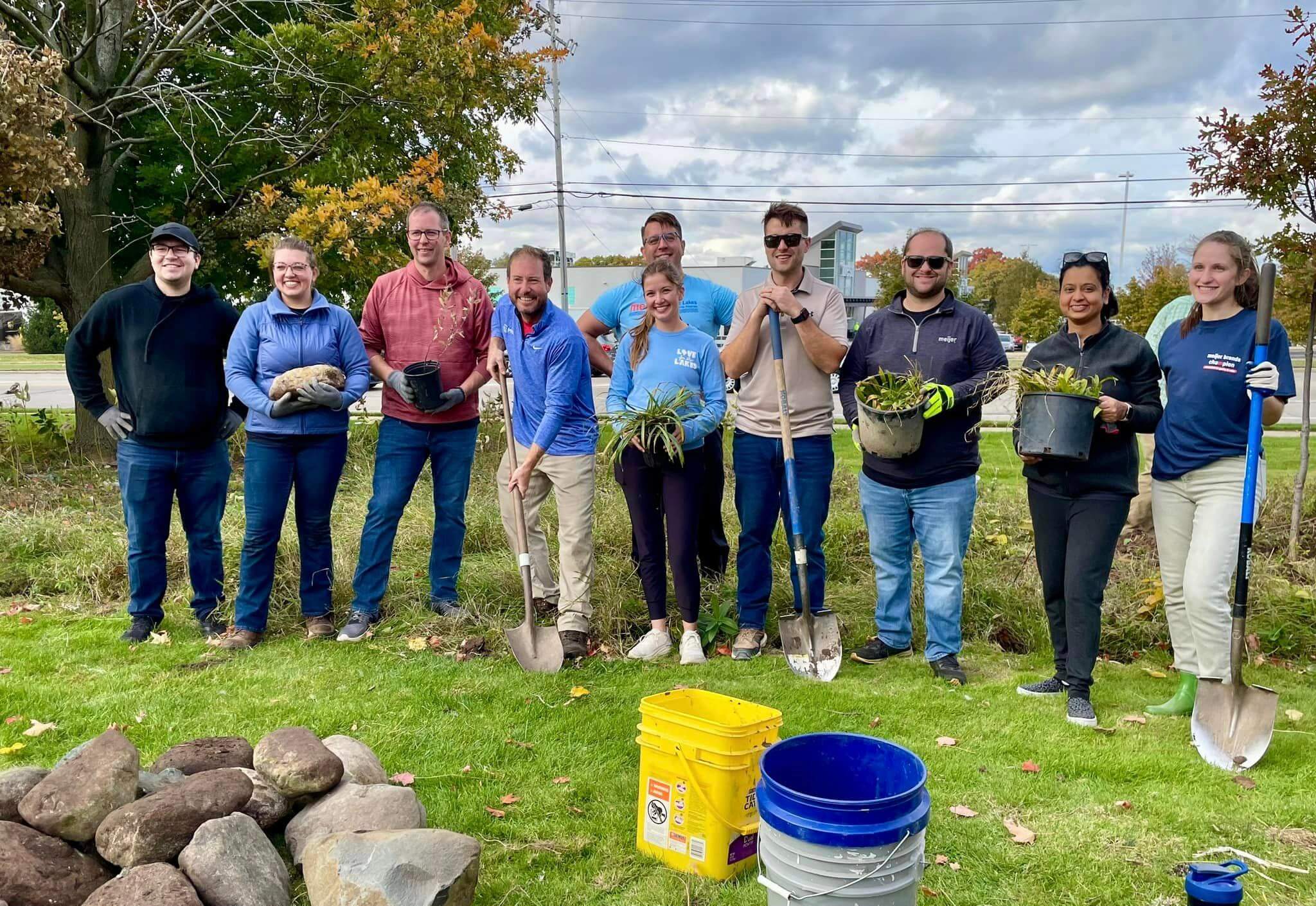
In the age of ever-increasing risks and impacts from climate change, communities need creative and long-lasting solutions to strengthen resilience. Often, the most locally and culturally relevant solutions come from those who know their communities best: residents.
For years, River Network has been supporting organizations in leveraging the place-based power and expertise of residents and communities to advance informed and impactful climate resilience. Since publishing the Tools for Equitable Climate Resilience in 2020, we have worked with nearly 30 organizations nationwide to advance community-centered programs and projects.
This month, learn about how we’re using the Fostering Community Leadership tool to work with three organizations that are addressing the need for localized water and climate leaders: Audubon Great Lakes, Watersheds of South Pittsburgh, and Plaster Creek Stewards.
“I walked into Project GreenER with energy and a love of being outside. I left with such a broadened perspective on watershed ecology – both natural and community – that it launched me into leading environmental projects at work, in my neighborhood, and even in my own backyard.”
– Nathan M (sustainability enthusiast; Project GreenER participant 2024)
“‘Working’ in water, whether it’s paid work or not, is an obligatory part of my existence. In words I am graciously borrowing, ‘water is a relative,’ and raised me with intention.
Being called to work in water is an iteration of being in relationship with water over the course of my life.”
Hannah Mico, author of our February feature piece and host of this month’s At the Water Table episode, is River Network’s Resilient Communities Manager.
We’re thrilled to launch the Building Blocks of Trust Self-Paced Training Series on our Online Learning Platform!
Curious about what positive, progressive partnerships between water utilities and community groups may look like?
In this new series, developed in partnership with WaterNow Alliance, we dive into the specifics of building trust-based relationships sustainably and fairly. Based on case studies from 9 partnerships across the country, this training series integrates helpful readings, shareable resources, interactive reflections points, and more!
Learn more about the free Building Blocks of Trust training here.
Many water organizations offer environmental education and training for the next generation of climate leaders, but what happens when youth age out of these programs?
In this episode of At the Water Table, Andrea Lubberts (she/her), Haley Kornoelje (she/her), and Matt Hubers (he/him) of Plaster Creek Stewards reflect on the differences and similarities in working with youth and adults, the importance of accessibility and adaptation in multi-generational programs, and the strategies they used to build trust and effective partnerships. Learn why a more age-inclusive approach is essential to your watershed work!
Listen to the episode with Andrea, Matt, and Haley – hosted by River Network’s Hannah Mico!
A Note on the Federal Funding Pause
Last week’s federal funding pause is affecting dollars that are meant to be flowing into communities to make the lives of people better through clean water, flood protection, community resilience, and tree planting programs. This is our moment to work together and face this reality head-on, through our collective power with all of you in the network. Here’s what you can do:
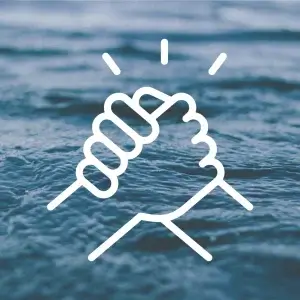 If you are a funder, you are likely already considering how you can release flexible funds immediately. Keep checking in with your grantees to see what they need.
If you are a funder, you are likely already considering how you can release flexible funds immediately. Keep checking in with your grantees to see what they need.- Reach out to your Members of Congress. It’s critical that they hear from constituents like you about the real-world positive difference federal funds are making to ensure clean water, flood protection, and resilience for your community.
- Share your experiences. Help us be the bridge between on-the-ground impacts and national partners and allies. Fill out this form to share the impacts on your organization and/or community to show the importance of these funds and how they impact water, people, and community.
- Check in with your community. We must face challenges by caring for each other, sharing where we have the resources and skills, and asking for help where we need it most. We host many peer groups where you can find community.
- Take care of yourself. Do whatever you need to remember why you do this critical work. Remember that rest is resistance, too.
Please keep sharing what you’re hearing and our staff will continue to do the same. All of us at River Network remain a resource, and we remain a friend.
Making Your ENGO Youth Friendly
February 11, 10a PT/1p ET; Thursdays, March 20 – April 3, 10a PT/1p ET
After working with youth for 20 years, Apathy is Boring has developed the Youth Friendly Program to help organizations invest their time, energy and resources to uplift and activate young people in their spaces. Join Apathy is Boring for a webinar plus three workshops on engaging young people in your community.
Note: registration for the full series is $60.
Community Science Solutions: Documenting the Impacts of Contamination in Land, Air, and Water
March 13, 10a PT/1p ET
This session with the Urban Waters Learning Network will dive into case study examples of effective community science efforts around the country. You’ll learn how practitioners leverage funding sources and technical support to engage communities in data gathering and analysis, and work together to develop solutions that contribute to overall community health and wellbeing.
One Water Summit
July 8-11
Registration is open for the 2025 One Water Summit in Pittsburgh, PA! Since 2016, One Water Summit has sparked innovation by creating unique spaces for collaboration through engaging plenaries and workshops, dynamic learning labs and site-visits, and plenty of networking time between individuals, organizations, and delegations.
Colorado Wetlands for Wildlife Grants
The 2024-25 grant cycle of the Colorado Wetlands for Wildlife Program is currently open. This program is a voluntary, collaborative, and incentive-based program to restore, enhance, and create wetlands and riparian areas in Colorado. Applications are due February 10.
Partners for Places Grant Application Now Open
Partners for Places aims to enhance local capacity to build equitable and sustainable communities in the United States and Canada. These matching awards support the planning and implementing of urban sustainability and green stormwater infrastructure projects.
US Water Prize Nominations
Nominations for US Water Prize 2025 are open! Awarded at One Water Summit, the US Water Prize celebrates outstanding achievement in the advancement of sustainable, integrated, and inclusive solutions to our nation’s water challenges. Submit a nomination form by 8pm ET on February 12.
Upstream, Downriver
The film “Upstream, Downriver” takes viewers into the heart of the battle for water justice, featuring stories from frontline activists and water advocates – including board member Julian Gonzalez! Watch the original 30-minute film and keep an eye out for the extended version, which will premiere in March at DCEFF.
What We’re Reading
- 📖 Nature Poem by Tommy Pico – This book-length poem follows Teebs—a young, queer, American Indian (or NDN) poet—who can’t bring himself to write about nature, but is forced to reckon with colonial-white stereotypes, manifest destiny, and his own identity as a young, queer, urban-dwelling poet.
- 🎥 Color of Water Video Library – Water Hub’s Color of Water website has launched a new video library! Featuring water experts taking center stage at conferences, interviews, or on-air as they share stories with reporters, event attendees, podcast hosts, and more.
- 🎧 Earthly Reads: adrienne maree brown on Loving Corrections – In this new series from For The Wild podcast, adrienne shares more about her new book Loving Corrections and reminds us of what it means to value relationships and reflection across humanity.


